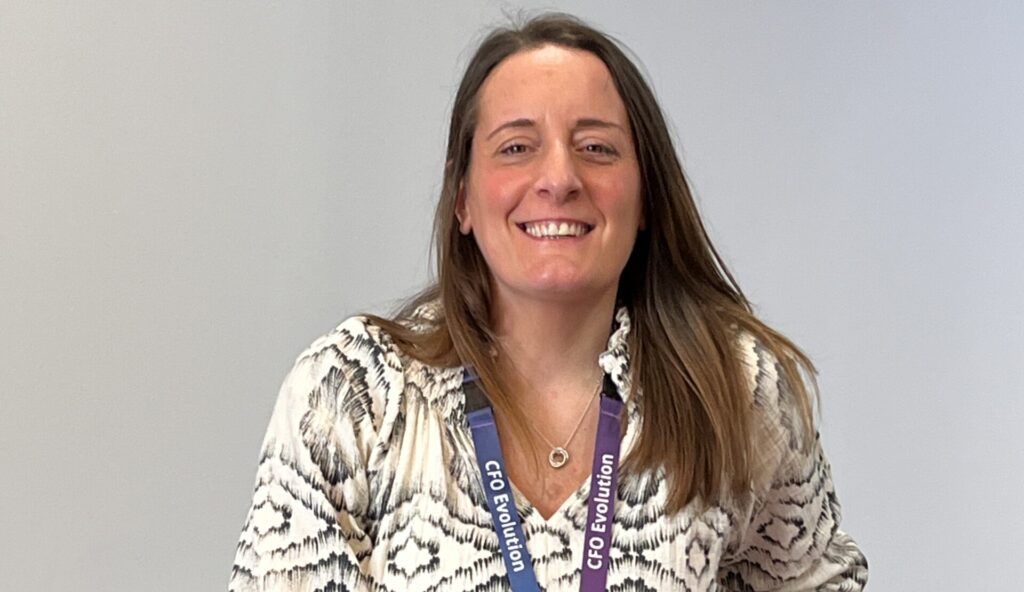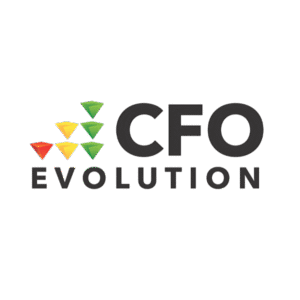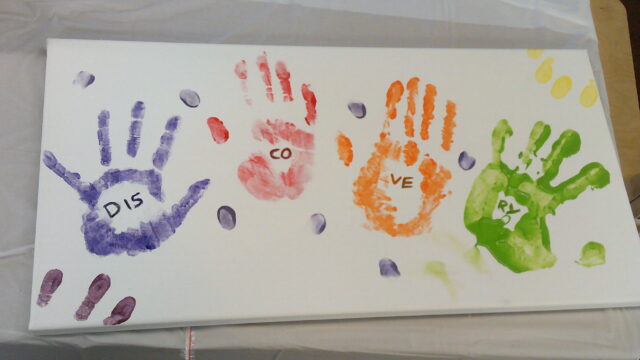Natalie is a Support Worker in Career Connect’s Achieve team. She explains how her work positively impacts on women in custody.

Natalie is a Support Worker in Career Connect’s Achieve team. She helps to deliver the CFO Evolution programme, which is funded by HMPPS CFO.
Natalie worked in probation, community settings and male prisons before becoming a Support Worker in a women’s prison, where she helps women offenders to overcome barriers and plan a new path upon release.
How would you describe your role? What does it involve?
I work with women of different ages, from women in the mother and baby unit, young adults and older ladies. It really is a mix of everybody.
If key foundations things like health, wellbeing, mental health and practical issues like money and housing aren’t addressed, then moving into a job, education or training won’t hold up.
The first thing I do when I meet somebody is do an assessment. We look at needs across the whole basis of someone’s life, really. Their housing, their work, their health, their well-being, their finances, their family situations. And then we look to support around all those different areas.
It’s also about helping women to engage while in custody, with a job, education or upskilling, so they’re doing something productive to also help their well-being while in custody. It’s about helping make sure that they’ve got a foundation of education or positive activity when they come out, because so many women I support don’t have education unfortunately, or didn’t go through the school system for lots of reasons.
I encourage women to use as many of the resources available to them as they can, because there’s a lot of services that are available, in prison and in the community.
When I meet a woman in custody for the first time, I’ll tell them that until they meet somebody like myself, they usually won’t know what’s available. I’ll ask them questions and take it from there – ‘oh, you’re interested in this? Ok, let’s have a look at this. What would you like to do? What were your goals?’ If a woman says she hasn’t got any goals, then it’s about taking it back to basics, and really getting to understand their situation. What are your hopes? What are your dreams? And then we can begin to look at getting there.
Everyone starts from somewhere different. And I think that’s the interesting thing about my job.
What challenges do the women you support face?
Everybody is different. Housing is a big issue for many women who are thinking ahead to release. Do they have somewhere safe to go? Many women I support have been in unstable relationships or violent situations, and they don’t want to go back, but if you’re going out, and there’s no fixed abode, then you’ve got a hard choice to make. I help link them up with housing applications and making a plan wherever I can.
Upon release, we have activity hubs and community workers, so a focus is to get our women into attending the activity hubs, because they’re quite a good safe space, and they can still access support and stay engaged with achieving their goals.
There are challenges for women, it’s a lot of trauma and self-esteem, feelings of self-worth. My role is about helping women build themselves back up again, after what could have been one of the worst times in their life.
It’s about really making the most of those one-to-one interactions with them and helping them with the little things that can make a big difference.
Substance misuse is also a big issue for many women coming into custody, and I help link them up with help and support. Mental health is a massive issue, and many women have experienced trauma going back years and years.
Women, being in most cases the main caregivers of their children, have lost that everyday contact with their children and have to deal with that and the social services processes to work through.
It’s helping women believe that they can achieve things, and that the success stories are out there – I’ve seen them, having also worked in the community.
There is opportunity there, there is another way, you don’t have to continue on the road that you’re going down. A lot women do worry that employers won’t hire them, or that they won’t be able to secure a property, but I can give them many stories where a woman has gone on to further education or something like that where they’ve been really successful.
So, I think it’s working on those little things and just chipping away and trying to support as much as possible and keeping people on track.
A few years ago, one woman I was supporting said to me, ‘why are you so nice to me?’ And I said it’s because I know it could happen to me. Anything can happen to anybody at any point.
And our role is about getting people past that and back to where they want to be.
What do you like most about your role, and what is the most challenging?
Working with the people. I’ve always loved my job and what I do. I feel like I’m doing something purposeful. Seeing the difference in women and seeing their resilience. You will hear some of the stories and you think, how are some of these women still standing after what they have been through? But their resilience is unbelievable. Being able to help them look forward and believe that they can achieve their goals is unbelievably rewarding.
I also love the team that I work with. The people that I work with in the prison and have worked with in probation are some of the best people you’ll ever meet. It can be testing at times, but you keep each other going, and you keep the morale high.
In terms of challenges, you do have to adjust to the way things work in a prison environment, but once you are used to it, it becomes second nature. Things can also change quite quickly in prison. For example, if there is a lockdown, appointments can change, and you have to pick them back up at a later date.
It can be hard, as you are supporting people who are often at the worst point of their lives, but equally, you are seeing them on their way back up again.
People can come a long way in a very short period of time. And that is amazing to see.
What skills do you need in your role, and what advice would you give someone thinking of a role like yours?
It’s about treating each participant as an individual, as a human being, as a person that needs support showing to them. You need to have patience, and you need to be interested in people. You need to have the will to never give up on somebody.
You have to be truly non-judgemental. You will work with people from every walk of life. I would say you’ve just got to give it a go. It’s an interesting role, and you’ll never be bored.
You also need to know you can’t change things for everybody, immediately. I always think that if I can plant the seed, it might not work straight away because not everybody is going to be ready. Things come up in people’s lives that they need to focus on. But when people are ready, in their own time, they will come back and look for that help.
What creates positive change for women in custody and on release?
There are lots of changes that we need to make in society as a whole, like more specialist services for women, and more access to housing when someone is in an unsafe or unstable situation.
I think access to education is really important. Once you get your foundation in education, you can move onto a pathway in prison. So, you’re doing your maths and English, now you can move on to a beauty or construction course. If you do beauty or construction, you can get an NVQ, then you can get a job or set yourself up in self-employment. And you can work with us to try and help you set up your own business, things like that.
So, it’s about showing women the pathways, what they can achieve, and that there is a way forward.
This programme is funded by HMPPS CFO. To learn more about the work of HMPPS CFO please visit: CreatingFutureOpportunities.gov.uk

